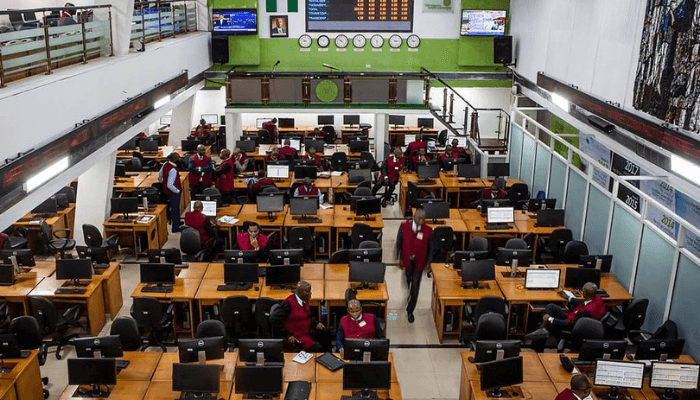Beta Glass, Ellah Lakes drive stocks to historic N100trn mark
…As Aliko Dangote mulls sell of 10% stake in Refinery
The Nigerian stock market is moving towards a historic milestone as its total capitalisation nears the N100 trillion mark, driven by strong rallies in stocks such as Beta Glass, Mutual Benefits, UPDC REIT, and Ellah Lakes.
The NGX All-Share Index (ASI) surged past 153,000 points this week, underscoring the market’s strongest momentum in recent years.
The equities market’s historic high comes as billionaire businessman Aliko Dangote plans to sell 10 percent equity stake in Dangote Refinery on the Nigerian Exchange Limited (NGX). Stocks listed on the NGX have yielded cumulative returns of 49.37 percent year-to-date (YtD).
As at October 22, Beta Glass had risen by 648.84 percent year-to-date, Mutual Benefits (+585.25 percent), UPDC (+330.82 percent) and Ellah Lakes (+308.23 percent).
The equities market rose to a new high this week, extending its rally on the back of broad economic reforms and improving investor sentiment. The NGX ASI advanced 1.50 percent on Wednesday to close at 153,736.25 basis points, pushing market capitalisation to N97.58 trillion.
Read also: NGX hits highest USD market cap since June 2023
Other stocks that have returned over 200 percent this year are: ABC Transport (+245.53 percent), NCR (+220 percent), Sovereign Trust (+243.75 percent), SCAO (+244.66 percent), Presco (+211.56 percent), FTNCocoa (+208.79percent), NASCON (+250.88 percent), Honeywell Flourmill (+264.29 percent), Champion (+291.08 percent), and Cadbury (+223.02percent).
The index has now gained 49.37 percent year-to-date, underscoring the strength of demand in blue-chip stocks across key sectors. The market’s advance underscores renewed investor confidence and the resilience of Nigeria’s capital markets amid a shifting macroeconomic environment.
Analysts say that the stock market rally reflects sustained demand for blue-chip stocks in the banking, industrial, oil and gas, and consumer goods sectors, a trend buoyed by reform-led optimism, improving foreign exchange liquidity, and a more stable economic outlook.
“The entire market is in a strong upward trend, hitting all-time highs. This bullishness is largely driven by earnings optimism as investors are eagerly awaiting the release of Q3 2025 corporate results. A positive earnings report from a major company could fuel further market-wide gains,” Vetiva research analysts said in their October 21 note.
The market’s rebound coincides with a broader policy reset that has redefined Nigeria’s economic outlook. Measures such as the liberalisation of the naira, removal of fuel subsidies, and closer coordination between fiscal and monetary authorities have begun to restore a degree of macroeconomic stability, even as inflation remains elevated.
Read also: Stock market nears N100trn as Index crosses 153,000 points
These themes dominated discussions at the Financial Times Africa Summit 2025 in London, where Temi Popoola, group managing director and chief executive officer of NGX Group, joined a panel entitled ‘Nigeria’s Economic Journey: Crisis, Recovery, and Risk.’
Popoola noted that much of the market’s resilience could be traced to a ‘wave of coordinated reforms’ that have rebuilt confidence in the country’s financial architecture.
“The strength we’ve seen in the market has been driven largely by reforms, from the President’s economic agenda to decisive actions by the Central Bank of Nigeria (CBN), Securities and Exchange Commission (SEC), PENCOM, and other regulators,” he said. “These efforts have created the right foundation for investor confidence and renewed market activity.”
Emomotimi Agama, director-general of the Securities and Exchange Commission (SEC), echoed similar sentiment, pointing to the Investments and Securities Act 2025 as a turning point for governance and regulatory transparency in the market. “The new law was crafted to reflate the economy by providing clarity, certainty, and discipline in our markets,” Agama said. “Robust regulation has been central to restoring market integrity and investor trust, providing the transparency required to anchor long-term capital formation in Nigeria.”
Other participants, including Patience Oniha, director-general of the Debt Management Office (DMO), and Will Straw, chief executive of King’s Trust International, observed that the next phase of Nigeria’s reform journey lies in ensuring that the gains in stability and capital inflows translate into broader, inclusive growth for households and businesses.

